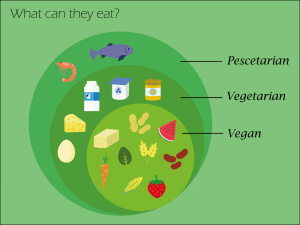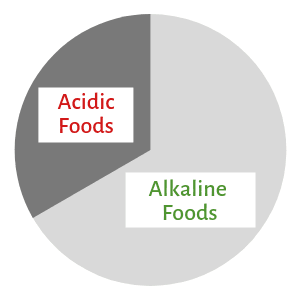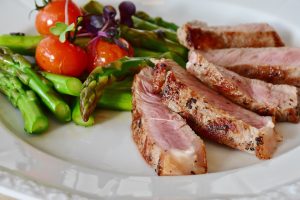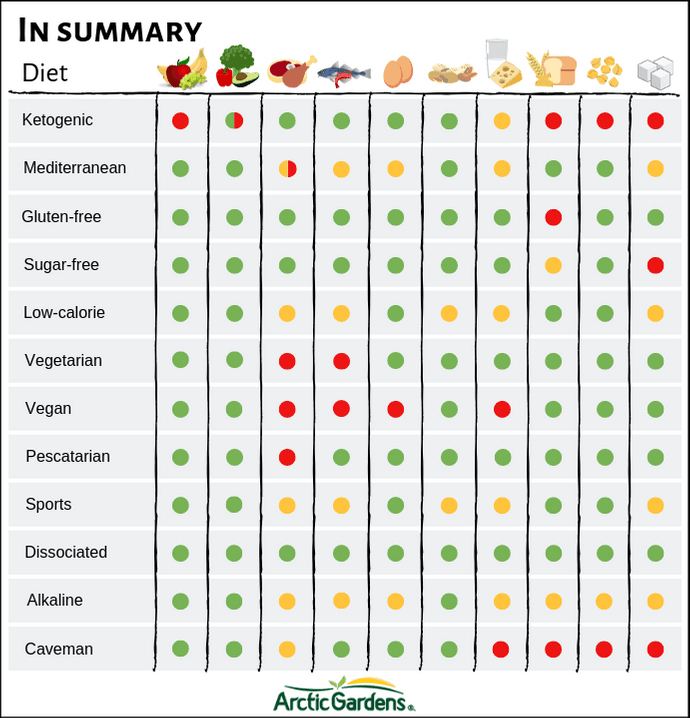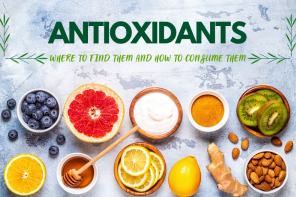Whether they’re called diets or diet plans, it can be difficult to navigate your way through all these food trends. To help you demystify the world of dieting, we’ll show you some of the most popular diets of the day, such as the ketogenic and Mediterranean diet.
What is a diet, anyway?
A diet, also known as a diet plan, is a practice that adapts your eating habits to meet specific needs which may be of cultural, religious, medical or ideological origin. A diet can be divided into three principles:
- abstaining from certain food, such as meat
- providing a special diet plan, like the ketogenic diet
- totally or partially depriving yourself of food for medical reasons, such as the diabetic diet
By definition, a diet is “an eating plan in which someone eats less food, or only particular types of food, because they want to become thinner or for medical reasons”. But sometimes people put themselves on a diet for personal reasons.
Questions to ask yourself before going on a diet
Before you start a diet, ask yourself this: do you need to go on a diet?
It’s important to ask yourself why you want to go on a diet. Are you comfortable in your own skin? Do you have a condition that requires a special diet? Do you want to follow a new food ethic? Take the time to think carefully before making a decision, but most importantly, talk to your doctor first.
Diets aren’t to be taken lightly as they can be harmful to your health if not adapted for you. They can, among other things, cause vitamin or iron deficiencies, for example. Consult a health care professional before doing anything. They’ll give you advice and guide you towards what’s best for you.
Different kinds of diets
New diets pop up every year and keeping up-to-date can be tricky. Here are 10 popular diets right now: the ketogenic, Mediterranean, gluten-free, sugar-free, low-calorie, vegetarian, vegan or pescatarian, sports, dissociated, alkaline and caveman diet.
Please note that you should always get the advice of a health specialist before applying any of these diets to your eating habits.
The ketogenic diet
The principle of the ketogenic or keto diet, is to significantly reduce carbohydrate consumption in favour of fat. Buy why? To cause a state of ketosis, meaning when the body begins to draw its energy from lipids or fat rather than carbohydrates as it normally does. It usually takes between 2 and 4 weeks to reach this state.
How does the keto diet work?
The keto diet is, therefore, based mainly on consuming fat. According to the total daily calorie intake, this diet should adhere to the following proportions for the body to maintain its ketosis state:
- 5% carbohydrate

- 75% fat
- 20% protein
What does the diet allow?
- fish, seafood, meat, poultry
- eggs
- butter, vegetable oil
- olives, avocados, vegetables low in carbohydrates (spinach, lettuce, kale, etc.)
- hard cheeses
What does the diet not allow?
- any food containing sugar
- grains, starches, breads, pastries, cookies
- legumes, potatoes, sweet veggies (beets, corn, carrots, etc.)
- soft cheeses, fresh cheeses
- milk or yoghurt made from non-dairy milk (almonds, soy, etc.)
The Mediterranean diet

The Mediterranean diet, also known as the Cretan diet, is a dietary practice from the countries surrounding the Mediterranean Sea, hence the name.
This diet is based on a high daily consumption of:
- fruit and vegetables
- legumes
- grains
- water
In addition, people on this diet consume olive oil and aromatic herbs daily to replace salt in dishes.
Consuming dairy products, eggs and red wine should be moderate, ranging from once a day to once a week. It’s also advisable to limit fish consumption to about twice a week and to avoid meat, especially red meat.
The gluten-free diet

Gluten is a protein found in many grains, such as wheat, barley, oats, rye and a variety of by-products. The gluten-free diet is, therefore, very restrictive and requires that the protein be completely excluded from the diet.
While some people choose to follow a gluten-free diet, others are forced to do so because of an intolerance called celiac disease. It’s an auto-immune disease where the immune system destroys the wall of the small intestine after you eat something containing gluten.
Grains that don’t contain gluten:
- rice
- quinoa
- buckwheat
- corn
To learn more about gluten, read our article called, “Gluten: everything you need to know!”
The sugar-free diet
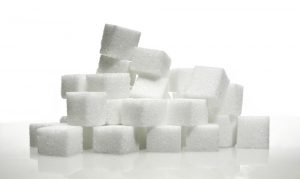 Like the ketogenic diet, the sugar-free diet consists of eliminating products containing a high level of carbohydrates (more than 5%), but also all products containing added sugar, such as white, refined, artificial, brown sugar, etc.
Like the ketogenic diet, the sugar-free diet consists of eliminating products containing a high level of carbohydrates (more than 5%), but also all products containing added sugar, such as white, refined, artificial, brown sugar, etc.
However, unlike the keto diet, carbohydrates from natural foods, such as vegetables and fruit, are permitted. Fat and salt aren’t forbidden either, but they should be consumed in moderation, as should starchy foods and grains.
The low-calorie diet

The goal of the low-calorie diet is to reduce daily calorie intake to force the body to tap into its reserves. This decrease in caloric intake must be monitored in order not to fall into a state of malnutrition and prevent the body from functioning.
The basic principles of the low-calorie diet:
- a caloric intake between 1,200 and 1,500 kcal/day (on average, can vary from one person to another)
- all food is allowed, but in limited quantities
- limit fat and fast sugars
- reduce portions
It’s a diet that’s a little limiting, but still includes a wide variety of food.
Vegetarian, vegan and pescatarian diets
Increasingly popular, the vegetarian diet consists of not eating any meat or fish. However, eggs and dairy products are allowed, unlike the vegan diet which excludes all food of animal origin. Another variation of the vegetarian diet is the pescatarian diet which allows fish and shrimp, as well as dairy products and eggs.
People who choose for these kinds of diets do so mainly for ethical, environmental or health reasons.
To learn more about the vegetarian or vegan diets, read our articles, “Vegetarianism for teens” and “The vegan food test”.
The sports diet
The sports diet is intended for people who practice high-intensity physical activities. So it’s meant for athletes who train more than one hour at high intensity more than four times a week.
The principles of sports nutrition:
- focus on carbohydrates
- eat lean protein (poultry, eggs, legumes, tofu, etc.)
- limit fats
- keep hydrated
Carbohydrates are the main source of energy for an athlete, but they must be accompanied by good nutrients, such as protein. Complex carbohydrates, which provide the body with long-term energy, should also be a focus.
Preferred complex carbohydrates:
- whole grain pasta, brown rice, whole grain couscous
- whole grain bread
- whole grain cereal
- legumes
There are no restrictions for the sports diet. However, food that is difficult to digest should be avoided, such as fats, spices, coffee, etc. Moreover, despite some beliefs that athletes eat a lot of meat to satisfy their protein intake, it’s quite possible to combine sport and veganism.
The dissociated diet
In a disassociated diet, you’re allowed to eat everything or just about, just not at the same time. For example, it’s recommended not to consume certain foods together. This type of diet can also saturate your appetite quickly by consuming only one food. The most well-known dissociated diets are the Antoine, Shelton and Montignac methods.
The Antoine diet
- rapid appetite saturation by exclusively consuming one type of food each day (ex., only fish on Monday, only vegetables on Tuesday, etc.)
- a balanced diet is achieved over seven days instead of one
- the diet is done with a one-week cure every month
The Shelton diet
- food is classified (acidic fruit group, melon group, etc.)
- meals (acidic and starches, proteins and sugars, starches and fats, etc.)
- milk must be consumed by itself, the same goes for fruit
The Montignac diet
- based on the concepts of the food glycemic index and food combinations
- all concentrated sugars, with the exception of fructose, must be removed
- food with a high glycemic index (beer, rice, bread, bananas, etc.) should be removed
- avoid “animal and starchy protein” or “protein and carbohydrates” food combinations
The alkaline or acid-alkaline diet
The alkaline diet assumes that the human body contains too much acidity and, combined with stress and lack of physical activity, this leads to an acid-based imbalance in the body. Too much acidity in the blood can cause many ailments (fatigue, osteoporosis, high blood pressure, etc.). According to this diet, the body should, therefore, be rebalanced by consuming mainly alkalizing food and reducing acidic food.
How does the alkaline diet work?
- ⅔ of the food consumed should be alkalizing
- you should reduce your consumption of acidic food to ⅓
Mainly alkaline food groups:
Mainly acidic food groups:
- meats
- milks
- breads
- processed food and desserts
- beverages containing caffeine
- alcohol
The Caveman diet
The caveman diet is a diet derived from the palaeolithic way of life. To respect the physiological needs of the body, this diet, therefore, aims to adopt the same diet that our ancestors had before the industrial era. This practice would help the body to function optimally. It’s a diet based on animal proteins, plants and oilseeds. On the other hand, it excludes all products from agriculture and the agri-food industry.
- lean meat
- fish
- seafood
- eggs
- fruits and vegetable
- unprocessed vegetable oils
- nuts
What does the diet not allow?
- all grains and legumes
- dairy products
- tubers (potatoes, for example)
- sweet and processed products
- soft drinks
Why do people go on diets?
Often, one of the reasons to go on a diet is to lose weight and feel better about your body. Saddled with a few extra pounds and summer approaching, some people go on a diet to lose weight and get their figure back.
For others, there could be health reasons that encourage them to go on a diet. After consulting with a doctor, there could be health benefits for some people to avoid eating a particular food that could, for example, be causing an allergy.
Others go on diets for ethical reasons like vegetarian or vegan diets. Their eating habits are built according to specific moral convictions that push them to exclude certain food that doesn’t correspond with their values.
In conclusion
Even if you think you know a lot about the human body, new discoveries are being made regularly and that’s why diets or diet plans will always be in constant flux. If you’re tempted to try one of these diets, we strongly recommend always getting the advice of a health professional before going on one because there could be certain risks associated with it.
So have you ever gone on a diet?


